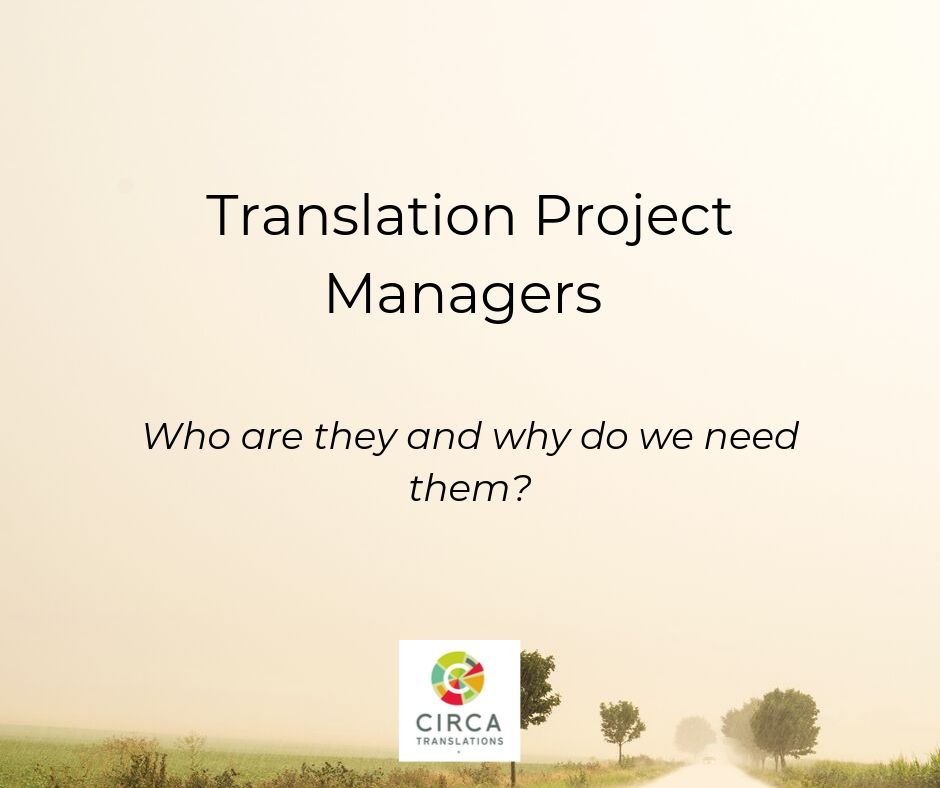Why rely on translation project managers?
Managing a translation team cannot be solely left up to project management tools. Translation project managers make sure that your project succeeds. When ordering a translation, make sure a project manager is assigned to the task to avoid potential headaches. Translation project managers are the secret superheroes of the linguistic kind.
Why hire translation project managers?
When the translation project comes back to you (i.e. the client) in the wrong format and layout, who will you contact? And what if the person responsible for the translation has left town? What if you decide that you no longer want the translation done in the target language, who should you call to re-negotiate rates for the 50,000 words that’s due in a week?
So no, project managers (PM) are not merely go-betweens; they make sure your project survives, thrives, and evolves according to your expectations.
Are there major differences between translation project managers (TPM) and regular managers? The fundamentals across industries are the same: to plan, to organize, to communicate, to motivate, and to execute the project from beginning to end while handling conflicts along the way.
Once the finished product gets handed to the client, a mutually beneficial and harmonious relationship has (hopefully) been established through this collaborative work effort.
What is Translation Project Management?
It’s not enough to solely focus on the language transfer when it comes to managing a translation project. A client might want a document translated from English to Japanese, give the work to a translator who speaks the two languages, and decide that the job is as good as done.
But did the client research the translator’s qualifications? Verify their fluency and cultural knowledge in the target language? Check their professional and academic background? How about looking into their skills in translation technology?
Most clients seeking a translation will focus on the price, while ignoring the qualities in the translator that would contribute to the project’s success.
Excellent translation project managers will focus on finding translators qualified in their specializations, and who might also be subject matter experts. Exceptional translation services do not only focus on translating languages in written texts; they also get the right people together with the right competencies to realize a vision — and having a project manager who knows the steps is integral to bringing results.
A TPM bridges gaps between clients and translators. An insightful TPM will determine the client’s expectations before translation starts, such as:
- checking the translator’s academic and professional background
- verifying their linguistic experience
- looking over their sample work and determining where they’ll fit best on the team
During the translation process, communication must be firmly established.
- who and when should the translators ask for clarification
- what term bases and style guides should everyone on the team be following
- what the revision process looks like
And what happens after the work has been submitted to the client? The TPM will:
- track payments
- resolve client complaints
- evaluate the translator’s performance
But aren’t project management tools supposed to replace people?
Project management tools support the project manager from dividing up the work, to creating invoices, to tracking what’s been finished. Tools can simplify and automate the translation management process—but it’s not there to do the work for the project managers.
Tools help, but they are not supposed to replace people.
Tanya Sapty Prabhu, founder of Circa Translations, remarks:
“When it comes to the translation process, project managers have much more responsibility than is often credited to them. The translation seems to magically appear, but in reality they are the most active communicators on the team. They make sure the most current information is shared and implemented from client cues to language data.”
Project management tools will not solve client complaints, detect serious errors in the translation tasks and ask for justification, nor will it chase down outstanding invoices from clients in order to pay for the work that was done.
Agencies who value quality over time limits, or target audience focused writing over robotically produced texts, will be grateful for the TPM who has the ability to bring people together and produce an inspiring translation.
Sources
“How to Awaken Your Inner Ninja in Translation Project Management.” RWS Moravia Blog, 20 Feb. 2015, https://www.rws.com/insights/rws-moravia-blog/how-to-awaken-your-inner-ninja-in-translation-project-management/.
Massardo, Isabella. “Project Management Inside and Outside the Translation Industry.” Localization, 17 Oct. 2018, https://www.wordbee.com/blog/localization-industry/project-management-inside-and-outside-the-translation-industry/.
McKay, Corinne. Creating and Managing a Translation Team. 6 Mar. 2017, https://www.trainingfortranslators.com/2017/03/06/creating-managing-translation-team/.
Leave a Reply

